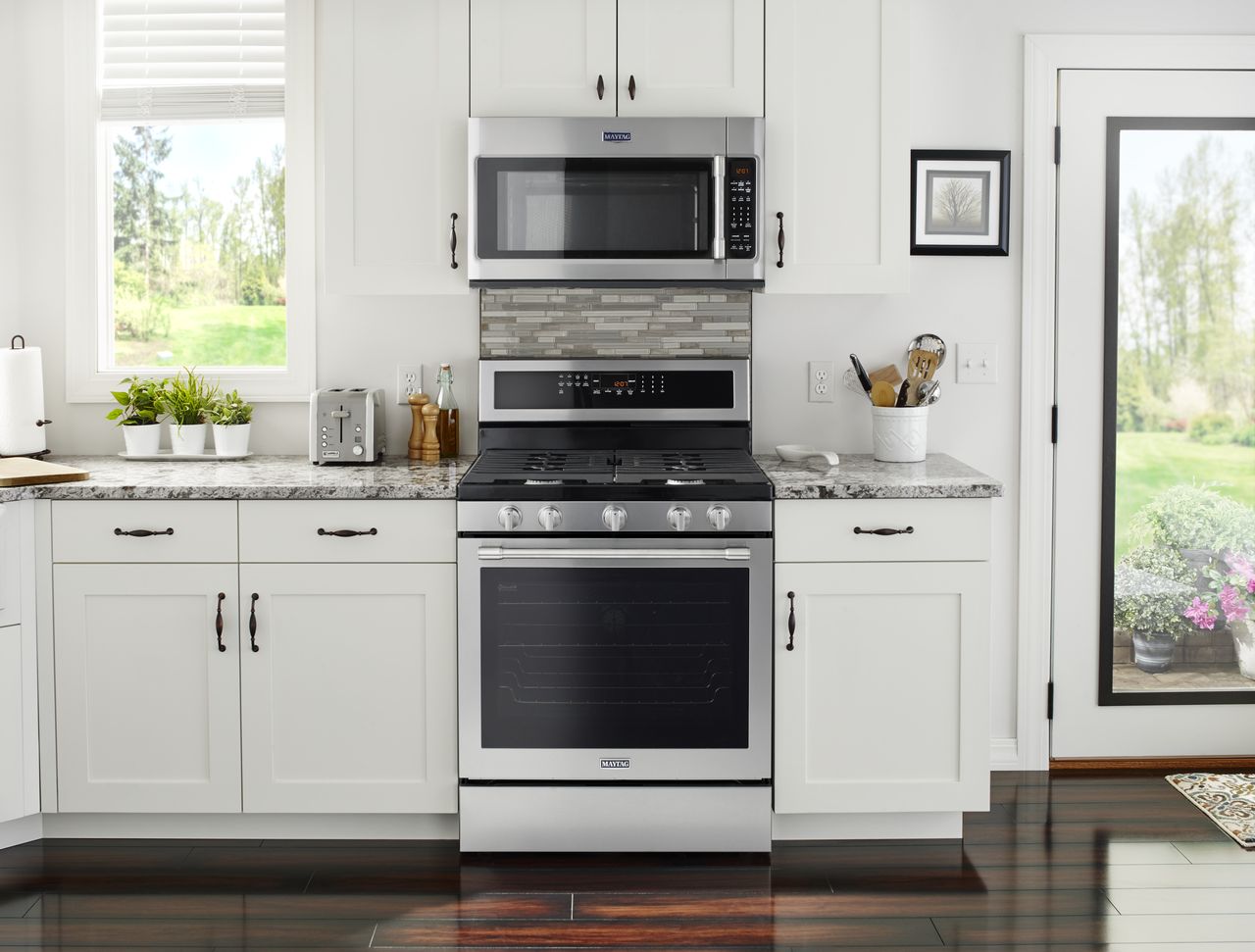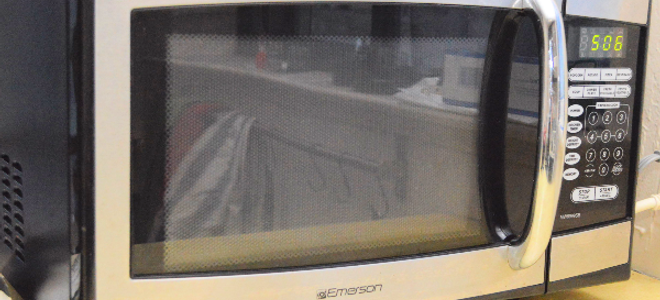Have you ever been startled when your microwave suddenly turns on by itself? It’s not just unsettling—it can be downright dangerous.
If your microwave starts running without you pressing any buttons or closing the door, you might wonder what’s going wrong and if it’s safe to keep using it. You’ll discover the common reasons behind this strange behavior, how to spot warning signs that your microwave is failing, and what steps you should take to protect yourself and your home.
Keep reading to learn how to troubleshoot this surprising problem before it turns into a bigger issue.
Common Causes
Microwaves turning on by themselves can be surprising and unsafe. Understanding common causes helps you spot the problem early. Many issues come from the microwave’s control systems or electrical parts. Identifying these causes can prevent damage and keep your kitchen safe.
Faulty Control Panel
The control panel is the microwave’s command center. If it becomes faulty, it may send random signals. Moisture, dirt, or wear can damage the buttons and circuits. This causes the microwave to start without pressing any keys.
Sometimes, a stuck button or a short circuit in the panel triggers the microwave. Replacing or repairing the control panel usually fixes the issue.
Door Switch Issues
Microwaves have safety door switches to stop operation when the door opens. If a door switch is broken or misaligned, it may fail to detect the door’s position. This can cause the microwave to turn on unexpectedly.
Worn or damaged switches need inspection and replacement to restore proper function. Never use a microwave if the door switch is faulty, as it risks safety.
Electrical Surges
Power surges can confuse the microwave’s electronics. A sudden spike in electricity may cause the appliance to start on its own. Surges may come from lightning, faulty wiring, or unstable power sources.
Using a surge protector can help prevent damage. If the microwave turns on randomly after a surge, have a technician check the internal parts.
Internal Component Malfunctions
Various internal parts can fail and cause random starts. The control board, relays, or wiring may develop faults over time. Heat, age, or manufacturing defects can lead to malfunctions.
Diagnosing these issues requires a professional technician. Repair or replacement of faulty components is necessary to stop the microwave from turning on by itself.

Credit: www.youtube.com
Signs Of Microwave Problems
Microwaves usually work quietly and efficiently. Signs of microwave problems often show early. Noticing these signs helps prevent bigger issues. Watch closely for unusual behavior or sounds. Your safety depends on detecting problems fast.
Unusual Noises
Microwaves make a soft humming sound when running. Loud grinding, rattling, or banging sounds are not normal. These noises may mean the motor or fan is failing. Ignoring strange sounds can cause more damage.
Inconsistent Heating
Food should heat evenly in a microwave. If meals come out cold or uneven, there is a problem. The magnetron, which produces heat, may be breaking down. Cooking times that suddenly get longer are a warning sign.
Burning Smell Or Sparks
A burning smell from your microwave is dangerous. Sparks inside the microwave mean electrical faults. Stop using the microwave immediately if you notice these signs. Unplug the appliance to avoid fire hazards.
Door Seal And Latch Damage
The door seal keeps microwaves safe by blocking radiation. A broken seal or faulty latch is risky. If the door does not close tightly, the microwave may leak. Never use a microwave with door damage.
Unresponsive Buttons
Buttons on the microwave should work every time. If they stop responding or get stuck, it signals a problem. Control panel issues can prevent the microwave from operating properly. Repair or replace the microwave if buttons fail.
Turntable Malfunction
The turntable helps cook food evenly by rotating it. If it stops spinning, food may cook unevenly. A broken motor or gear can cause turntable failure. Check the turntable regularly to ensure it moves smoothly.
Troubleshooting Steps
Microwaves turning on by themselves pose a safety risk and cause frustration. Troubleshooting helps find the root cause and fix the issue quickly. Follow simple steps to check common problems. Each step targets a different part of the microwave.
Resetting The Microwave
Unplug the microwave from the power outlet. Wait for about five minutes to clear any stored errors. Plug it back in and test if the problem continues. This step often resets the control board and stops random starts.
Inspecting Door Mechanisms
Open and close the microwave door slowly. Check if the door latch clicks and locks properly. Look for dirt or damage on the door seals and switches. Faulty door switches can send wrong signals, causing the microwave to turn on alone.
Checking The Control Board
Remove the microwave cover carefully to access the control board. Look for burnt components, loose wires, or signs of damage. A malfunctioning control board can send false commands. Replace or repair the board if visible problems appear.
Testing Electrical Connections
Inspect all wires and connectors inside the microwave. Ensure all connections are tight and free from corrosion. Loose or damaged wires can cause short circuits or random powering. Use a multimeter to test the continuity of wires for safety.
Repair Options
Microwave ovens turning on by themselves is a sign of internal problems. Repairing these issues quickly can prevent hazards and extend the appliance’s life. Various repair options exist, depending on the problem’s cause. Some fixes are simple, while others need professional expertise. Understanding these options helps you decide the best action for your microwave.
When To Call A Professional
Some microwave problems require expert help. Electrical faults or complex parts need special tools and skills. If your microwave turns on by itself repeatedly, stop using it. Calling a professional technician ensures safe and correct repairs. Avoid trying fixes that involve high voltage components.
Replacing Door Switches
The door switch controls power flow to the microwave. Faulty switches can cause it to start unexpectedly. Replacing door switches is a common repair for this issue. This task involves removing the microwave cover and disconnecting the old switch. New switches are affordable and can restore safe operation.
Control Panel Repairs
Malfunctions in the control panel can trigger random starts. Buttons may stick or circuits may short out. Repairing or replacing the control panel can stop these problems. Sometimes a reset or cleaning fixes minor issues. For damaged circuits, professional repair is safer and more reliable.
Motor And Magnetron Fixes
The motor turns the turntable, and the magnetron generates microwaves. Faults in these parts affect cooking and safety. Motor repairs include fixing or replacing worn-out bearings or belts. Magnetron issues are serious and often require full replacement. Only trained technicians should handle magnetron repairs due to high voltage risks.
Safety Precautions
Microwaves turning on by themselves can be dangerous. It is important to follow safety precautions to protect yourself and your home. Knowing what to do helps prevent accidents and damage. Here are key safety tips to keep in mind.
Unplugging Before Inspection
Always unplug the microwave before checking or fixing it. This stops the power and lowers the risk of electric shock. Never try to open or repair it while plugged in. Safety first.
Avoiding Use With Door Issues
Do not use the microwave if the door is broken or does not close well. A faulty door can cause radiation leaks and harm. Check the latch and seal for any damage before use.
Handling Sparks And Burning Smells
Stop using the microwave immediately if you see sparks or smell burning. These signs show a serious problem inside the device. Unplug it at once and avoid turning it back on until it is fixed.
When To Stop Using The Microwave
Stop using the microwave if it turns on by itself or acts strangely. Persistent issues mean it is unsafe. Replace or repair it with the help of a professional technician to avoid hazards.

Credit: applianceexpresstx.com
When To Replace
Knowing when to replace a microwave that turns on by itself is important for safety. Microwaves can develop faults that are hard to fix. At some point, replacement is better than repair. This section explains the key factors to decide if it’s time for a new microwave.
Age And Wear Factors
Microwaves usually last about 7 to 10 years. Over time, parts wear out and fail. Older models may lack modern safety features. Frequent issues like random turn-ons often mean internal damage. Age and use cause electrical parts to weaken. If your microwave is old and acts strangely, replacement is wise.
Cost Of Repairs Vs New Unit
Repair costs can add up fast. Fixing electrical faults or control boards may be expensive. Compare repair price with the cost of a new microwave. If repairs cost more than half the price of a new unit, buy a new one. New microwaves offer better energy use and updated safety standards.
Signs Beyond Repair
Some signs show a microwave is unsafe to fix. Sparks inside, burning smells, or smoke are serious warnings. A door that won’t close or seal properly is dangerous. Unresponsive buttons and erratic behavior mean control systems fail. At these points, stop using the microwave immediately and replace it.
Choosing A Safer Microwave
Pick microwaves with good safety ratings and features. Look for models with child locks and automatic shutoff. Choose brands known for reliability and easy repairs. Energy-efficient microwaves reduce power use. A safer microwave lowers risks of accidents and unexpected turn-ons.

Credit: www.doityourself.com
Frequently Asked Questions
How Can You Tell If A Microwave Is Going Bad?
A microwave going bad may make strange noises, heat unevenly or not at all, emit burning smells or sparks, have unresponsive buttons, a faulty door seal, or a non-spinning turntable. Stop using it if these signs appear and consider repair or replacement for safety.
Why Does The Fan Randomly Turn On On My Whirlpool Microwave?
The fan in your Whirlpool microwave turns on randomly to cool internal components during or after cooking. This prevents overheating and protects the appliance.
What Happens When A Microwave Is Turned On With Nothing In It?
Turning on a microwave empty causes microwaves to reflect inside, potentially damaging the magnetron. Avoid running it without food or liquid.
Can A Faulty Microwave Cause A Fire?
Yes, a faulty microwave can cause a fire due to electrical shorts, sparks, or overheating. Always unplug and repair it immediately.
Why Does My Microwave Turn On By Itself Sometimes?
A faulty control board or stuck buttons can cause the microwave to start alone.
Conclusion
A microwave turning on by itself signals a potential safety risk. Check the door latch and control panel for faults. Strange noises or sparks mean stop using it immediately. Regular maintenance helps avoid sudden malfunctions. If unsure, call a professional technician for inspection.
Don’t ignore these warning signs to keep your home safe. Acting quickly can prevent bigger problems and costly repairs. Always prioritize safety when using kitchen appliances.
